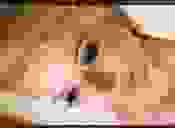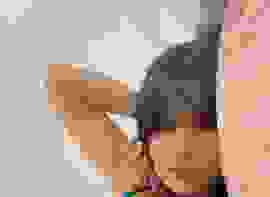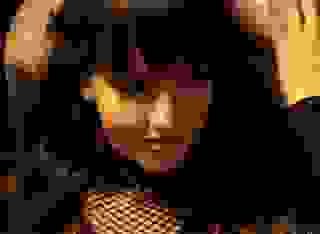Note: You can change font size, font face, and turn on dark mode by clicking the "A" icon tab in the Story Info Box.
You can temporarily switch back to a Classic Literotica® experience during our ongoing public Beta testing. Please consider leaving feedback on issues you experience or suggest improvements.
Click here"I met your great-grandpa's brother once. I was a child."
Trish almost stopped breathing. He did not want to let go. Nor did she, perhaps for another reason. She realized his mind was sharp. Other things were sharp, also.
"We were playing up on the ridge. The one we named for him, Madman Ridge. We didn't do that much because he was up there, our parents told us to stay away. He would watch us from up in a tree, or a hole in the ground, so many bombs went off around here there are still holes. We'd see him but he'd stay far away, unless we got too close to the lower part of the ridge. He chased us off, swinging a stick or throwing rocks." He laughed, or cackled." Anyway, one day the others all ran down the other side around the pond down there, more of a swamp really. That's the edge of our property. I went in this direction and suddenly he jumped me. I was ten? This would have been about 1927."
She finally extricated her hand and sat on the daybed. Jacques stood.
Nine years after the war? How'd he lived? Did he work?
"Did he hurt you?" she asked.
"No, he saved me. He smelled. His clothes were just rags. He was very, very thin. You see, I was about to run into this stake sticking up out of the ground. It was hidden in the weeds and thorns, vines, but if I'd fallen on it..." He shook his head. "He pointed to it, walked me by it, holding both my arms, and once I was on this side of the slope he pointed to our house here and let me go. I ran away."
"A few years later I looked for the stake but it was gone. Maybe he was growing tomatoes," he said, and laughed thinly.
He had trouble getting his breath, this was exciting for him and hard, he must have been close to a hundred years old.
"Where'd he live? How'd he live?" she asked.
The old guy looked at her and smiled. He liked being old. Since he got old, every woman he saw was pretty, and this American girl who just wanted to know about her kinsman was more than most. You're a flirt, Moreau, he thought to himself. He started to laugh but it started him coughing. He blamed the Americans for the state of his lungs, too. Marlboros, even though he quit in the 1970s.
When he caught his breath, he smiled at Trish, and she thought, he's flirting! He's liking this attention. He feels more important because I want to know what he's kept locked up for decades.
"He would sneak down to our house in the dark, usually. Other houses toward Rochambeau. He'd go through garbage, sometimes someone would see him by the road and leave out a coat or used clothes, some apples or leftovers. He became very thin over the years; we'd not see him for weeks on end and then he'd turn up. Some guys saw him fishing a few times in the pond, but there's not much in there but some small stuff. A few times people saw smoke from farther up the hill, well beyond the ridge with the stakes."
Trish was quiet, imagining him slowly wearing down, homeless, exposed to the elements, deranged or obsessed or something crazy.
"He never hurt anyone?" she asked.
"No. There were rumors, but no one ever claimed he hurt them. A few were tackled or knocked down, but just on that one part of the ridge. Otherwise he'd just watch whoever was near. He'd even wave a few times, when people were far away."
Trish was afraid to ask her last question. "What happened to him?"
Mr. Moreau smiled, sadly. "It was harsh in these parts the one winter, maybe 31-32 or 30-31. I don't remember, but it's on the stone. We didn't see him at all that winter, and come spring some kids found him. Up in the rocks on the hill beyond the ridge he'd put up some pallets and wood and built a shelter of sorts. But he froze to death, they thought, though he may have starved. His hands and feet were frostbitten before death, so he may have died either way."
Trish sat back, as if she'd reached an end of sorts.
"Where'd they put him?" she asked.
The old man seemed to get a glimmer, as if he were suddenly enthusiastic.
"They found some papers with him. No diary, not like that, but wrapped in oilcloth and rubber sheet. In a rusty German ammunition box he must have found, not one of the wood ones. He'd gone to trouble to save it. The first paper printed in English block letters, PLEASE BURY ME ON THE LOWER RIDGE. WITH MY BOYS. It was signed, FINCH."
Quiet again. Then he went on, without prompting. "I know all this because they gave it all to my father. Our farm, after all, and if someone'd come looking we'd know as much as could be known. Would you like to see the papers? His effects, if you will."
Patricia jumped up, her heart racing. "Oh my God, yes! Do you know how much the original documents could help? For verification? Credibility? Yes, oh please."
Jacques, sitting beside her on the daybed, patted her hand and said, "In that chest, Grandpa?"
"Yes, you know the one. And bring me a lemonade and refresh our guest's."
"Yes, Grandpa, of course, Grandpa, anything you say, Grandpa," Jacques said and laughed. Trish heard him yelling then for the kids, checking on them.
It was silent in the room.
Trish said, "Did he leave other writings, Mr. Moreau?"
He nodded. "Yes, a little military stuff no one here could make sense of. Probably because we could translate the English to French but the jargon is not the same, so our veterans couldn't figure it. Probably not important. There was a long list of names, side by side; as if there should be a picture above it and each person identified. Then there's a page, well, here he comes now."
Jacques was carrying a small wooden chest. He unlocked it with a key, saying, "I've wanted to know what was in here for all my life. At least you kept the key!"
His grandfather harrumphed and smiled. "There should be a small ammunition box. Get that out. And at the bottom, wrapped in cloth and tied with a rope, it'll be heavier."
Jacques found it, actually a World War I German metal box for ammunition. He opened it for his grandfather, who looked in. Then he reached in with both hands to the bottom of the chest and pulled out a large package that clinked as metal.
"Here, Miss Finch. It rightfully belongs to you, now," said the old man handing her the box.
She found yellowed papers, a wallet that had William Finch, USA on an American identity card; some money. There was a St. Christopher medal, army identity tags. Pictures! She found the papers, SKY GREY PLATOON in big letters, listing everyone in the platoon, by squad and team, as best she could figure. Not in column, but in rank side by side. Several pages, as if they should be adjoined sideways head to toe, and to the right a big rock and area he labeled Lafayette Woods. Perhaps Dr. Simms would know what to make of it. She saw the precise instructions for burial, very clear compared to the other things. There was also a note, as if wanting to explain to anyone back home why Billy Finch lived and everyone he was responsible for died.
"23 June 1918. At 0515 hours, I was at battalion briefing. Jack Johnsons? obliterated trench. Platoon went west. I know where each man is, as I look to the north. Their gravesite is a garden of knives." Added almost as an afterthought, was this statement: "Took bayonets, danger to children."
She read it, did not understand some, understood too well others, and decided she'd like to talk to Dr. Simms or General Marx.
Jacques opened the roped package of cloth, and there were dozens of old, rusted bayonets.
"I am confused by this also. If I come back tomorrow in the morning, could you take me up on the ridge. To where he's buried? Where he says his men are?"
Jacques said yes, looking happy she'd be back.
"Then I need to get back to Rochambeau. I have a phone call to make. I'll try to be here about 9 tomorrow, if that's okay?"
The old man reached out his hand, and she grasped it. He put his other hand on top. "I am glad you have come. It's time the issue be put to bed."
Trish thought, is he flirting again? Did he know how those words translated? She looked in his eyes and decided he knew exactly what he was suggesting, without making it obvious.
Jacques said, "Grandpa, you are a dirty old man." He laughed.
Grandpa Moreau howled, but then developed a coughing fit that soon passed. His eyes were twinkling.
Jacques walked her to the door.
"I look forward to tomorrow. I haven't been up on the ridge in a year. We'll see what we find. I know where they buried your relative, though."
Trish thanked him, looked at him a moment, and left, hesitating to look at those dark eyes again, but touching his arm. A strong arm.
It was mid-afternoon, and she'd missed lunch without a thought. She thought two kids were following her down the lane, but she couldn't see them in the trees nor on the ground.
Back at her room, she studied the papers and her gps, her maps, and decided the spur of the hill was the last known location of the platoon. The pond or swamp was likely the one marked on the old war map, with the arrows pointing the direction of attack around it.
She had an email message that discouraged her. It was from the granddaughter of Clara Lancaster Jones.
"Sorry to inform you that Clara passed away yesterday of natural causes. She was so hoping for your success."
She called her parents that evening and told them about her search, that she hoped to learn something soon. She asked them to tell Dr. Simms, should he call.
*
A sober doctoral candidate trudged to the Moreau farmhouse at 9 a.m. the next morning. It was June 23, coincidentally, a warm day again. Jacques answered the door immediately. He was clean shaven, she noticed.
"Hello, Miss Finch. How are you today? It looks like we have a great day for a walk in the woods."
"We do. Jacques, are you ready to go or do you need to get the kids or what?" she asked.
"The kids are with their father, at my request. He works when he feels like it, which is rarely, so he did not mind having his own children. My father is visiting his best friend, a lady, I have no knowledge what he could be doing, but I suspect. I have plenty of water for us, and some sandwiches if it gets to lunch or you just want to eat. Are you ready?"
Trish smiled. He wanted to be alone with her. "Please, I'm ready, I have some water also, some granola bars, and my first name is Patricia. My friends call me Trish. No one calls me anything but Trish."
"It's good to know you have no enemies," he said, smiling and closing the door. They went around the house and followed a track through the crops.
"Did you learn anything about the papers, last night?" he asked her as they reached the edge of the field twenty minutes later. He helped her up the rocks there, a pile probably removed from the fields over the years.
"I think so. I think the platoon's last known location was the ridge or spur here. GPS will confirm that in a few minutes, but it has to be so. My advisor and I went over the maps pretty thoroughly back home."
They climbed a gentle slope and then followed a small ravine for a hundred yards when Jacques stopped. They were among trees, but not old growth by any means.
"Did you recognize the trench? We've been in it for a hundred meters or so."
She was surprised. She'd thought it natural. "No, I didn't. This is not a front line trench, is it?" It was grassy, the bottom was not mud but seemed to drain.
"No. It was a trench to get to the big ones. It used to be filled with water much of the year, so I dug an outlet down there," he said and pointed to where they'd entered. "It worked. Cut down on mosquitoes and kids even come here to see a trench from the war once in a bit."
"Is it safe to play here? I mean, those old bombs..." she said.
He stopped and looked at her. "The Germans were here, took this ridge early in the war. The British tried to take it back and did, finally. In 1918 an American unit was here. The Germans were just the other side of the valley." He pointed north.
He didn't go on, just stood there in the trench.
He finally said, "My sister found Cheri and Jean digging up a Marten Hales Number 2 hand grenade, right over there at the base of the hill," he said, pointing down the slope near where they'd entered the trench. "She took it from them, made them run to our house, and was putting it down when it went off. Not a huge bomb, but enough if one is not lucky. It had probably been there 96 years, working its way to the surface." He was quiet. Trish felt his anguish. "They used radar then in the area, but who knows if that is thorough? No, it's not safe."
They continued walking up the increasingly shallow trench to the top of the ridge, or spur, really. The trench just ended among scrub trees and tangled undergrowth. There was no trench here, nothing but uneven dirt and rock and trees growing haphazardly, as if the ground were churned long ago. They walked further up the ridge, along its northern military crest, as Dr. Simms had explained to her. They picked their way around that mound and this pile, higher, toward a hill in the distance.
To the right was a huge depression, many yards across and several deep. Trees and bracken were thick, and water filled the bottom.
The ground levelled then but with a slight depression running the length of the ridge. Getting through the bracken was a problem still at times. Stickers and thorns took a toll, and even though in long sleeves and pants, both of them were pricked and scratched and had spots of blood on hands, arms, and legs. Trish stubbed her toe and stepped on some small rocks just below the ground cover, uncomfortable but no problem. It happened again a few yards on.
Farther on was another large depression, this one with brackish water in the bottom. There were other small holes along the way. Artillery? Trish wondered and came to assume.
As they reached where the ridge/spur joined the hill, Jacques grabbed her hand and led her around a distinctive rock. On it was carved, barely discernible now, FINCH 1931.
"He's buried about five feet down right there, I've been told," he said, pointing under the base of the rock.
She stopped and looked. Dross, leaves, and detritus covered the spot. It was large enough, if they'd not encountered other rocks.
"I was told there was a large depression, a shell hole, so the digging was practically done. They just cleaned it out and then filled it in."
She ran her hand over the name on the rock. She took a picture with her phone, hoping the resolution would show the chiselled name. She leaned close to the rock. "Where are your men, Uncle Billy?" she whispered, hoping it was not noticed.
Jacques could not hear, but he saw her. He didn't ask, but she answered.
"Let's walk down the spur again."
They did. After about 50 metres they stopped and pulled the tangled weeds apart and looked at the ground. Standing on one of those protruding rocks, Trish pushed off and it moved, just a bit. Getting down on hands and knees, she cleared around the protrusion she'd stepped on, and Jacques looked on from above, ripping and pulling vines away. She dug around the projection and she realized it wasn't a rock. She recalled she'd stepped on several of these protrusions, stubbed her toe several times. She gave a cry. It was the muzzle of a rifle.
"What is it?" Jacques said.
"They're here. Below our feet. The Lost Platoon." She spoke in English, not realizing, and then she translated for him.
The bayonets had been removed by Billy, perhaps after the incident with Mr. Moreau, but the muzzles remained, some above and some an inch or so below the surface.
She cried then, not a lady's sad cry, but the wailing cry of a mother who has lost a child and just found the body.She wailed for a father finding a son or daughter deceased, for all those mothers and fathers and wives and brothers and sisters who died without knowing what happened to their child or brother far away. First she was frantic, scraping with her fingertips at the dirt around the muzzles of the rifles, finding one, two, seven, more and more, and there they were lined up, prepared to attack: concussed and suffocated and dead.
She imagined them seated on the firestep, rifle butt on the bottom of the trench, bayonet sticking 16 inches beyond the rifle, perhaps ten or 14 inches above the soldier's helmeted head. She imagined them now as skeletons just below her feet. Their attack never left the trench because it collapsed, inhuming them.
Jacques held her, kneeling in the bracken, and she leaned against him. He realized the horror of this place he'd lived near his whole life. How awful, she thought. They've been here all along...
Americans, he thought. He stroked her hair until she was calm.
*
They retraced their steps to his house, slowly, now early afternoon, holding hands, and she sometimes leaned against him. Then he put his arm around her. Trish was exhausted, as much by the emotional wrenching she'd felt as the mile or so they'd walked. They sat together on the couch, resting, not wanting to talk about bombs and wars, or so many dead men, or his sister, or wars long ago and still killing good people. It yanked at her; his sister died for a war quickly being lost to memory, leaving two little ones...
They kissed as if kissing would push thought away. His hand worked its way under her shirt; there was a need in her from so much emotion. She felt him through his pants, and he was hard, so hard. "Have you a condom?" she asked.
"Oui," he said.
They were against each other, kissing hard, painfully. He tore at her clothes and she his. He was hard and naked from the waist down, and she stood and let him pull her pants and panties down. He kissed her bottom and squeezed it with each hand. He had a condom and she saw him putting it on.
"Good, hurry, Jacques!" she said, pulling him over from the couch. He thought that she was beautiful and sexy and she faced the wall as his cock sought what it hardened to seek, slid up and along her until it found her opening, and was in her because she was so wet. Soon she was groaning with his fullness. "Yes, please, yes," she said, and things like it, loving the pure concentration on her sex, the filling and emptying and filling.
She turned and pulled him by hand to the couch, where she lay back and spread her legs wide.
She had never done this, not like this, not with someone she hardly knew, and for a moment she wondered at her willingness. She pushed her wonder aside.
He was filling her with his need to get every bit of him into her, her legs spread and his weight on her and his hands on her breasts. "I am going to cum," he said.
She said, "Do it. I want to feel it, so much... Jacques, Jacques," and she felt his swelling as the urgency built, his rapid thrusts more arduous, and spurts then, inside her, exhausting her and him, his groan of climax and her sigh of peace. They relaxed, and he held the base of his penis to hold the condom on as he withdrew, and she felt empty. They were together for sometime, half naked, as he softened, and still she loved the moment, the warmth, the touch of a man with her. It was as if she were alive again, no longer surrounded by so much young death.
They rested side by side, slumped on the couch. After some time, she spoke.
"It was wrong, Jacques. I don't know you. You don't know me. I don't know why..."
Jacques smiled. "You are beautiful, we are young, you have lived with this painful event for a long time. I do not have someone in my life. No woman."
She thought of Ryan. Always Ryan.
"It will not... Please, don't," she started and stopped, unsure what she wanted to say.
"I will tell no one. For me, it will be a great and secret joy," he said. He kissed the air. "Perhaps when my grandpa asks me about today, I may wink at him. But I will never admit it. I did not expect it. Perhaps I hoped, though," he smiled.








